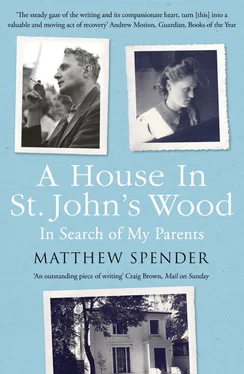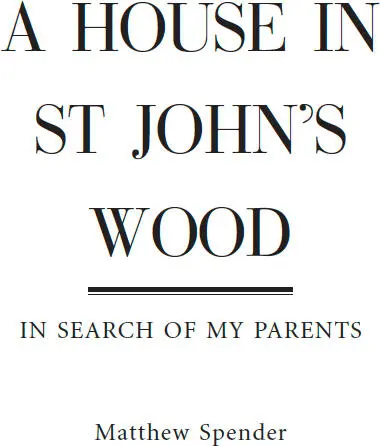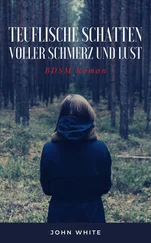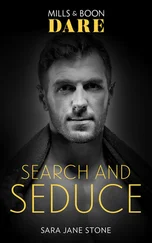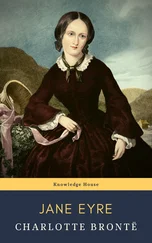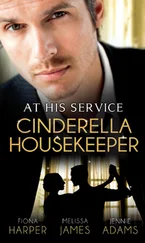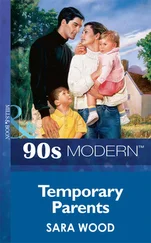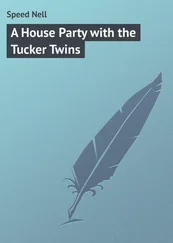
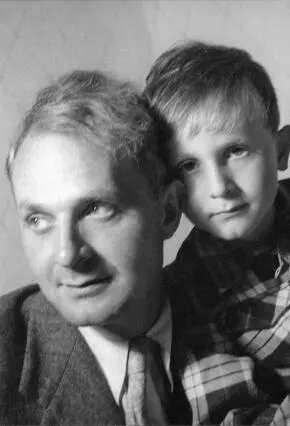
My father and me in 1957 .
William Collins
An imprint of HarperCollins Publishers
1 London Bridge Street
London SE1 9GF
www.WilliamCollinsBooks.com
First published in Great Britain by William Collins in 2015
Copyright © Matthew Spender 2015
Matthew Spender asserts the moral right to be identified as the author of this work.
A catalogue record for this book is available from the British Library.
Cover images © Lizzie and Matthew Spender Collection (photographs), except for (top left) by W. Eugene Smith/The LIFE Picture Collection/Getty Images; Shutterstock.com(background texture and picture frames)
All rights reserved under International and Pan-American Copyright Conventions. By payment of the required fees, you have been granted the non-exclusive, non-transferable right to access and read the text of this e-book on-screen. No part of this text may be reproduced, transmitted, down-loaded, decompiled, reverse engineered, or stored in or introduced into any information storage and retrieval system, in any form or by any means, whether electronic or mechanical, now known or hereinafter invented, without the express written permission of HarperCollins.
Source ISBN: 9780008132064
Ebook Edition © August 2015 ISBN: 9780008132071
Version: 2016-05-24
To my grandchildren: Cleopatra, Aeneas, Ondina and Marlon
Contents
Cover
Title Page
Copyright
Dedication
Natasha’s Last Wishes
Chapter 1: A worldly failure
Chapter 2: Without guilt
Chapter 3: Suicide or romanticism
Chapter 4: A sly Shelley
Chapter 5: Mutual renaissance
Chapter 6: Fires all over Europe
Chapter 7: The purity was hers
Chapter 8: America is not a cause
Chapter 9: Your sins of weakness
Chapter 10: Don’t you ever tell a lie?
Chapter 11: Dreaming one’s way through life
Chapter 12: Scandalous gossip
Chapter 13: The irresistible historic mixed grill
Chapter 14: The kindest face
Chapter 15: A strong invisible relationship
Chapter 16: Barrenness and desolation
Chapter 17: Too ambivalent
Chapter 18: You’re unique
Chapter 19: Without banquets
Chapter 20: Over-privileged?
Chapter 21: Might just as well be married
Chapter 22: A nice little niche
Chapter 23: Trust
Chapter 24: Killing the women we love
Chapter 25: Your father will survive
Chapter 26: Romantic friendships before all
Chapter 27: The right to speak
Chapter 28: Guileless and yet obsessed
Picture Credits
Notes
Index
Acknowledgements
About the Author
By the Same Author
About the Publisher
MY MOTHER DIED on 21 October 2010, at eleven in the morning, in her bedroom on the top floor of 15 Loudoun Road, the rented house in St John’s Wood where she’d lived for the previous sixty-nine years. I heard the news on my cellphone driving along a back road in Tuscany. I rushed home, collected my passport and flew to London, where I arrived at about seven in the evening.
The house had been neglected since my father’s death in 1995. A large crack ran down the external wall to the right of the front door. Squirrels nested in the roof next to the water-tank, and they’d reopen their hole every time we patched it up. I’d offered to make major repairs on condition that I’d be reimbursed after her death, but the lawyer told me, ‘It won’t happen. Buy her an umbrella.’
Downstairs in my father’s study, my mother’s attempt to organize his papers had replaced the creative untidiness of work in progress with the sepulchral untidiness of boxes ready to be taken to an archive. In the music room her Steinway was shrouded and the scores were shelved. In her last years she’d actually forgotten how to play. The back door from the kitchen to the garden, squeezed by subsidence, had been planed so many times to make it fit the frame that it was no longer a rectangle. The house was a tomb long before her death added an aura of absence to the surreptitious creak of decay.
Her live-in minder had packed a rucksack and was waiting with her boyfriend in the hall. As I kissed her cheek, I smelled the excitement of a witness who’d seen someone die. I wondered if the experience was as thrilling as observing a birth.
My wife was waiting for me in the piano room. We phoned for the undertaker. Then I went upstairs to say my goodbyes. I took a sketch-pad with me to make some drawings of my mother as she lay there. I’d done the same with my father and it had been a fascinating experience, but this time it didn’t work. The drawings came out angrier and angrier. Was this my feeling, or hers? She herself just looked exhausted. The anger was in the drawings.
By her bedside lamp lay a curl of papers. In a desultory way I straightened them out. They were documents designed to exclude me from my father’s literary inheritance. A covering letter showed that she’d arranged to sign these in front of the lawyer a few days later.
She’d been talking about this for years and I’d always told her she should do whatever she thought best. Would she or wouldn’t she? There was an element of sadism in my detachment. In the background lay a battlefield. She knew I disagreed with her interpretation of my father’s life. To her, he’d always been a pillar of integrity, and anyone who questioned this was despicable. I agreed about his integrity, but everything else about my father’s life made me want to qualify her pure idea of him with the confusion of reality.
I’d always expected her to change her mind about cutting me off, but here we were. Dutifully, I took the documents to the lawyer the following day. Were we obliged to honour her wishes? The lawyer flipped through the papers and asked, ‘Where’s the signature?’ I said that she’d planned to sign them in his presence – let’s see – tomorrow afternoon. ‘A lot of old ladies leave things just a bit too late,’ he said. And casually he dropped them in the trash.
All other aspects of her Will were fine. She’d left everything to my sister Lizzie and myself. She hadn’t created a foundation dedicated to protecting her husband from my interpretation of his life. The lawyer added soothingly that, as we were our parents’ sole heirs, the literary executorship was of minor importance. So I calmed down.
It took us ten days to organize the funeral. Lizzie had just flown from London to Sydney and she needed time to recover before she’d fly back.
While I waited, I sat alone in the piano room listening to the shuffling of the masonry. I looked through the boxes next door but they contained nothing that interested me. Then I tried the door of the tiny room downstairs where my father used to store all the papers that he felt he couldn’t throw away.
It was still untidy, but no longer the impenetrable chaos it had been during my father’s lifetime. The correspondence had been sorted into slim files stored in alphabetical order. Among them I found two packages marked in my mother’s handwriting, ‘to be destroyed without opening after my death’. One was shut with a strip of Sellotape. The other had also been shut, but somebody had sliced it open. I took them upstairs to the piano room. After an hour of dithering, I began to read the contents of the open file. They were letters from Raymond Chandler to Mum. After reading two or three, I realized they were passionate love letters.
Читать дальше
